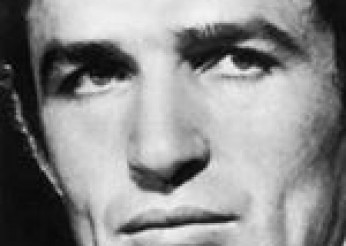Ivo Škrabalo: It is not so easy anymore to determine when the expression Young Croatian Film emerged and who used it first.
It is well-known, however, what it relates to. It describes an element of renewed optimism that emerged during the time of grave confusion caused by the war, when it seemed as if Croatian film had survived a death sentence. The previously active system of government financing for film production ceased to exist and thus renowned filmmakers found themselves in limbo, too intimidated by circumstances to engage in new creative endeavors. This happened in the early 1990s after Croatia broke all governmental and ideological ties with the former Yugoslavia and was forced to protect its freedom with arms. Luckily, it became evident that the Academy of Drama Art in Zagreb is in fact a nursery of educated and talented filmmakers capable of accepting historical challenges.
Among the many short and feature-length films that make up the body of New Croatian Film, there appeared a host of new young, talented and well educated directors, cinematographers, editors and actors, all coming former students of the Film Department of the Zagreb Academy of Drama Arts. Without them the creative and generational restoration of Croatian film would not have occurred.
Even in the first of his short academic films, which announced the arrival of the talented new generation of Croatian filmmakers, Mirta uči statistiku (1991) directed by Goran Dukić and shot by Darko Šuvak (both moved to America later), we could detect a new sensibility and an ironical detachment from the conventional view of relationships between different generations as well as fresh faces such as Nataša Dorčić, Sven Medvešek, and Barbara Živković. Later, in new short and feature films by other authors from this group, they were joined by many other fresh actors and actresses…
(Mladi hrvatski film, Hrvatski filmski ljetopis, br. 17. 1999, Zagreb).
Hrvoje Turković: Generational “restoration” of feature films
...Intensified hopes for restoration made audiences - and especially critics - more sensitive to the emergence of young authors. At the 1st Days of Croatian Film it was noticeable how young directors with good short films were emerging from the Zagreb Academy of Drama Arts. Their films were fresh and stylistically well done; short feature films and TV dramas by Goran Dukić, Hrvoje Hribar, Dejan Jovović, the late Jelena Rajković, Vlatka Vorkapić, Dražen Žarković, funny documentaries by Vinko Brešan, Jasna Zastavniković and Vlatka Vorkapić stood out among them.
Immediately there was talk about “Young Croatian film”. But soon the expectations lost momentum. It did not seem likely that these young people would get a chance to work on feature films and the spectacle of so many promising young directors at several Days of Croatian Film in a row (showing both short films and documentaries) did not get any recognition at the Pula Film Festival of feature films.
It seemed that this generation would not bring about a significant renaissance - some of its members got stuck working on TV, some moved abroad and others struggled to push their projects against the traditionally strong competition and in the face of a serious lack of financial resources. They all tried to survive doing all sorts of “side” jobs, the kind which are far from the centre of any creative vocation.
Nevertheless, ten years later, it does seem that there occurred a “restoration” of feature film, even though this generation may not have turned out to be quite renaissance-like… (Croatian Film at the End of Millenium, Hollywood, no. 51, January, 2000, Zagreb)
